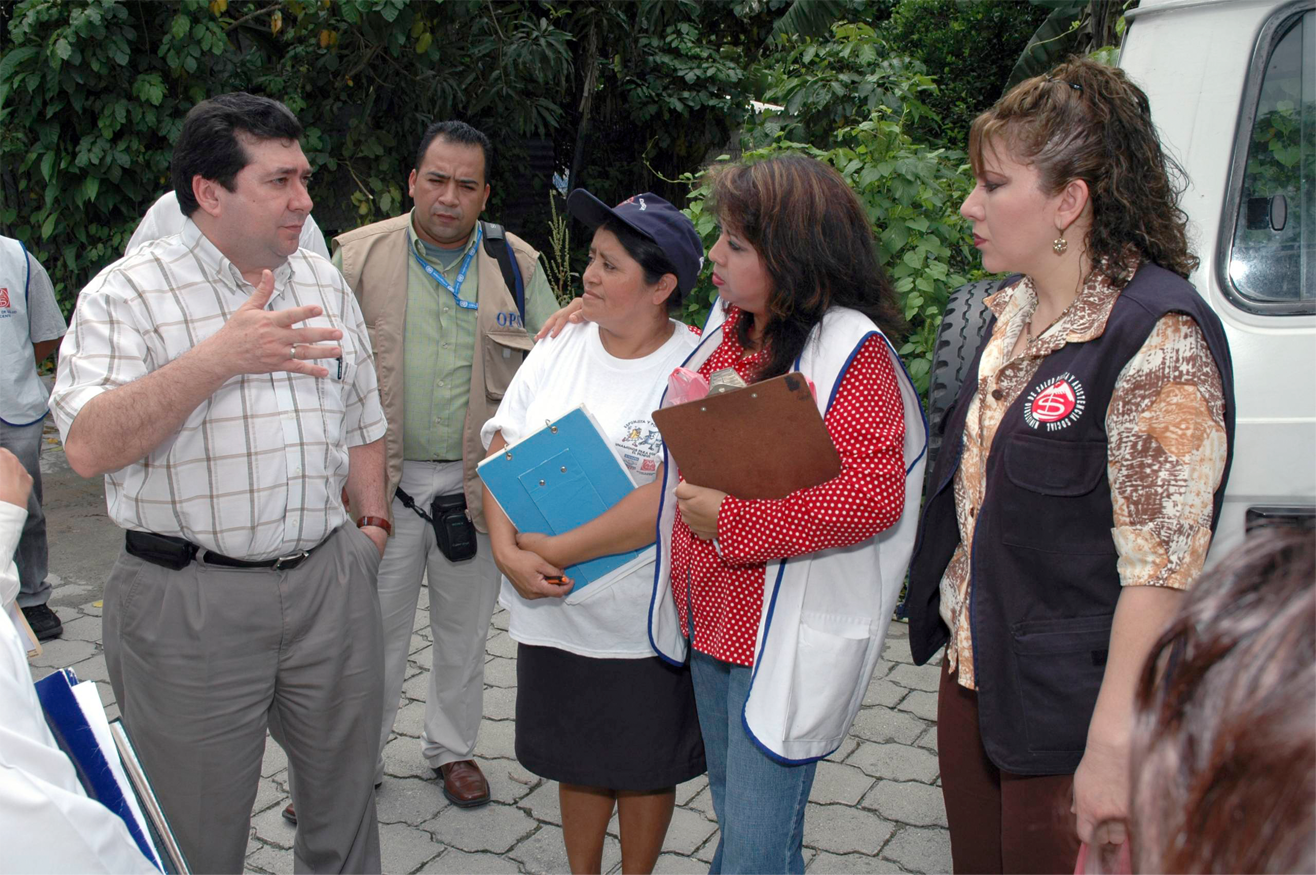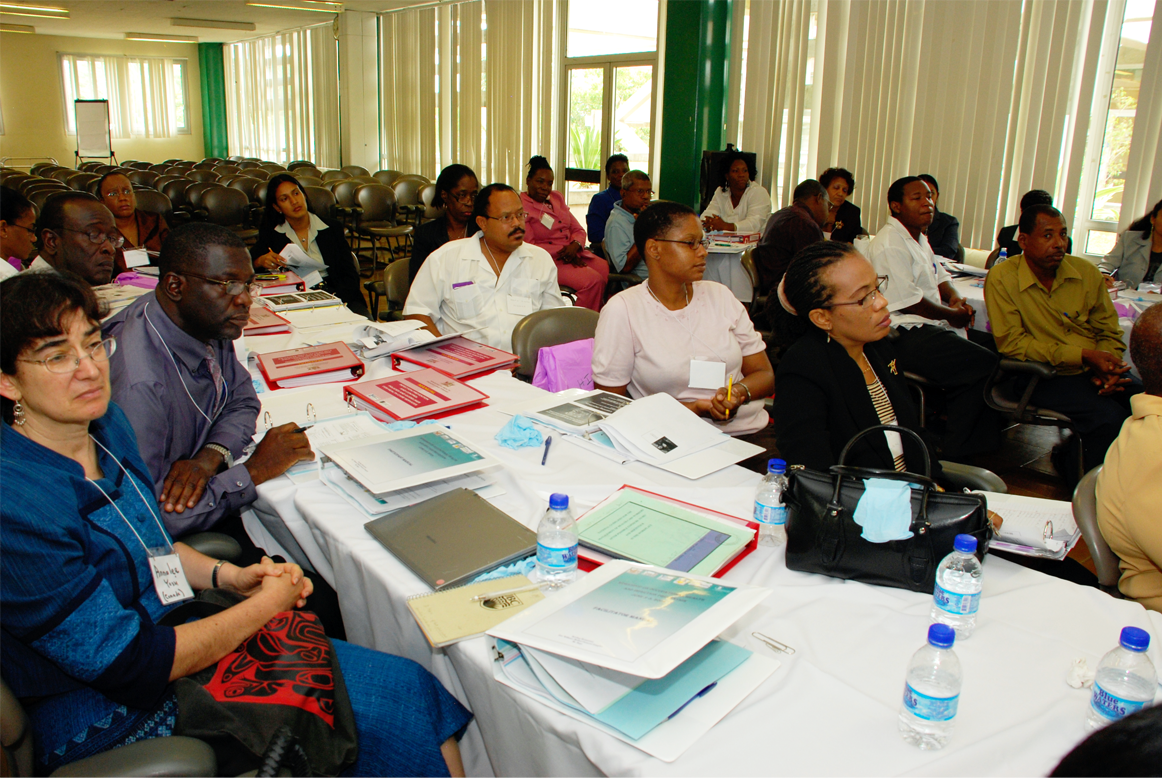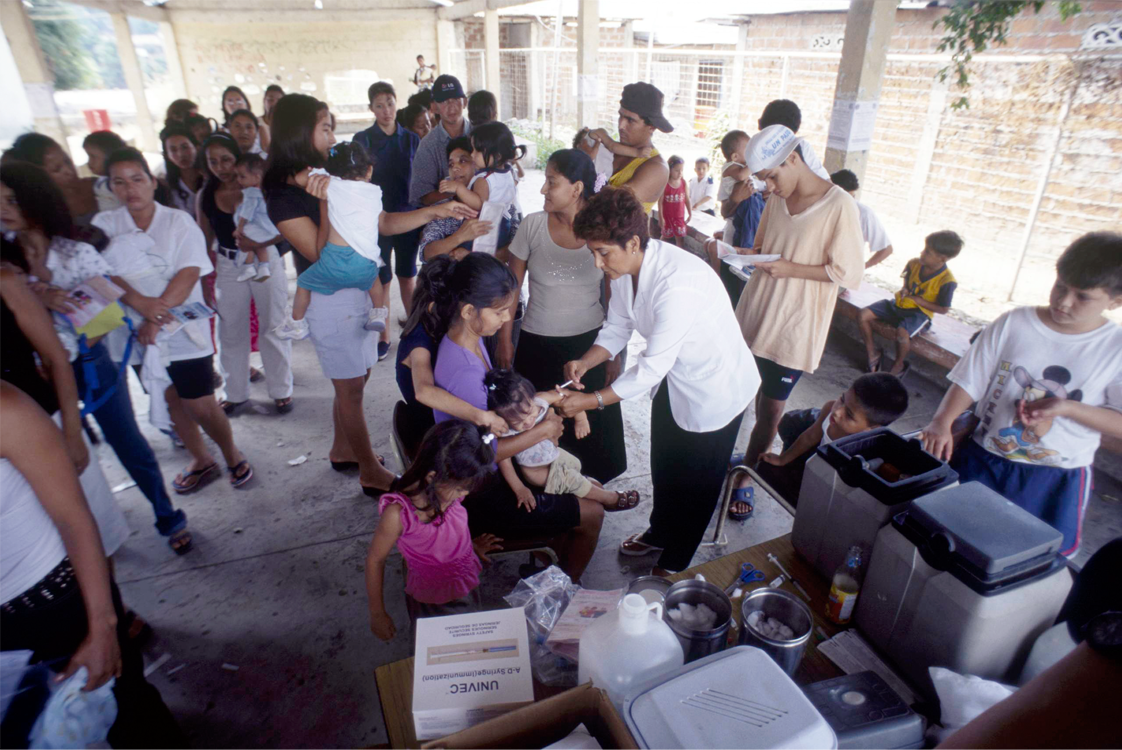Public policies are an important complement to efforts to expand coverage and improve health services. PAHO Member States have, with PAHO support, been developing and implementing policies that support the goals of renewed primary health care, particularly cross-cutting policies that involve other sectors in prevention, health promotion, and action on the social determinants of health. Much of this work has been aimed at reducing risk factors for chronic noncommunicable diseases. Below are some highlights of PAHO technical cooperation in this area during 2008–2009.

In Brazil, PAHO supported the implementation of the National Health Promotion Plan, which promotes behavior change toward healthy lifestyles. Among Brazil’s most notable efforts in this area is its pioneering work in tobacco control. In 2008–2009, PAHO carried out important work in support of Brazil, in partnership with the Bloomberg Foundation and WHO’s Global Program on Tobacco Control, including studies to support regulation of tobacco advertising and packaging and labeling of tobacco products. In addition, PAHO spearheaded an assessment of Brazil’s national capacity for tobacco control, in partnership with the Ministry of Health and the National Cancer Institute.
PAHO’s Caribbean Food and Nutrition Institute (CFNI) has vigorously promoted a public policy approach to the Caribbean’s food and health problems. Initiatives in 2008–2009 included advocacy for the inclusion of nutrition and health in agricultural sector policies, developing public policies to address chronic noncommunicable diseases and their risk factors through good nutrition and healthy lifestyle behaviors, and raising awareness of the risks to food security in the Caribbean due to rapid inflation on food prices. The institute provided advice to CARICOM’s Council on Trade and Economic Development on the negative impact of high prices on household food security. It also partnered with the Food and Agriculture Organization (FAO) to organize a Symposium on Food Security in the Caribbean: Risks and Responses. In addition, CFNI continued efforts to strengthen intersectoral cooperation with various partners (IICA, FAO, USDA, and others) on food safety, quality, and security.
In Barbados and the Eastern Caribbean (Anguilla, Antigua and Barbuda, Barbados, the British Virgin Islands, Dominica, French Guiana, Grenada, Guadaloupe, Martinique, Montserrat, Saint Kitts and Nevis, Saint Martin and Saint Bartholomew, Saint Lucia, and Saint Vincent and the Grenadines), PAHO is supporting efforts to follow up on the Port of Spain Declaration, “Uniting to Stop the Epidemic of Chronic Noncommunicable Diseases.” Activities supported by PAHO include the annual observance of Caribbean Wellness Day, the development of healthy public policies, the formation of National Commissions on NCDs, and efforts to mobilize civil society and academic institutions.
Also in follow-up to the Port of Spain Declaration, PAHO is working closely with Belize’s Ministry of Health to develop a National Plan of Action for chronic disease prevention and control, with a primary health care focus.
PAHO supported Mexican officials in organizing the First Meeting of Ministers of Health and Education to Stop HIV in Latin America and the Caribbean, held in Mexico City in August 2008. Participants included 56 ministers of health and education from 30 countries in the Americas. The meeting’s final declaration called for a 75 percent reduction in the number of schools under the jurisdiction of the Region’s ministries of education that do not offer comprehensive sex education, and a 50 percent reduction in the number of youths in the Americas who do not have access to health services that meet their sexual and reproductive needs. PAHO provided logistical and promotional support for the meeting and technical support for the drafting of the declaration. PAHO is also a member of the intersectoral group (led by Mexico) responsible for supporting the declaration’s implementation through collaborative action.

At the request of Ecuador’s Ministry of Health and Ministry of Urban Development and Housing, PAHO studied the living conditions in resettlement camps for people displaced by eruptions of the Tungurahua volcano and examined proposed areas for resettling people from Guayaquil neighborhoods affected by floods in early 2008. On the basis of the observations, PAHO developed a series of recommendations on how to minimize the adverse health impacts of resettlement efforts, how to empower people to reduce risks in their own dwellings, and how to develop a framework based on PAHO’s Faces, Voices, and Places initiative to guide the process of adaptation to new settlements for the displaced.
In Guatemala, PAHO worked with members of Congress to obtain approval of the Framework Convention on Tobacco Control (FCTC) and passage of a new Law on Smoke-Free Environments. PAHO also worked with the Ministry of Public Health and Social Assistance to develop an Information, Education, and Communication plan and mechanisms for monitoring and inspection to support the law’s implementation.
In Paraguay, PAHO has supported the development of a Policy on Health Promotion that includes a healthy housing strategy. The initiative is developing intersectoral agreements with the National Housing Council (CONAVI) to incorporate health promotion components into national housing plans.

Among the most important areas of PAHO’s support for policymaking on primary health care is its efforts to promote and protect health as a human right. This work focuses on using existing treaties, recommendations, and other national and international commitments to advocate for and shape reform of public policy and national legislation in PAHO Member States.
During 2008–2009, PAHO reached out to health workers, the general public, staff of national human rights ombudsperson’s offices, judicial system staff, and professionals who work in hospitals and other public institutions in 17 Member States to disseminate general human rights norms and specific regional and international standards that protect the right to the enjoyment of the highest attainable standard of health (“right to health”) and other associated rights for people with mental disorders, people with disabilities, older persons, people with HIV, indigenous people, and patients (patient safety).
PAHO also helped seven Member States-Argentina, Belize, Chile, El Salvador, Guatemala, Paraguay, and Peru-incorporate regional and international human rights norms into policies and legislation on aging, HIV, disability, mental health, sexual and reproductive health.
In addition, PAHO worked closely in 2008 with regional and global human rights bodies including the Inter-American Commission on Human Rights (IACHR) and committees created by United Nations human rights treaties (Committee on the Rights of Women and the Committee on Economic, Social and Cultural Rights, among others). PAHO provided technical briefings for the IACHR and other committees on the right to health and other human rights of people with disabilities, people with HIV, and people with mental disorders, as well as on malnutrition in indigenous children.